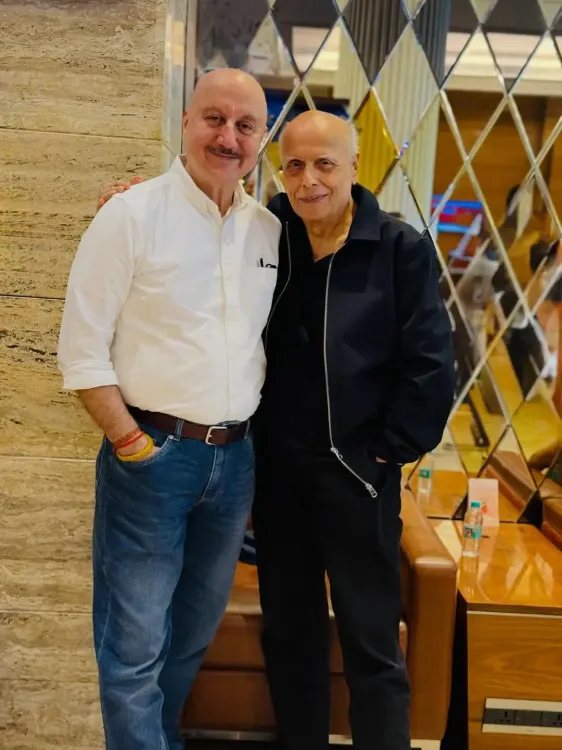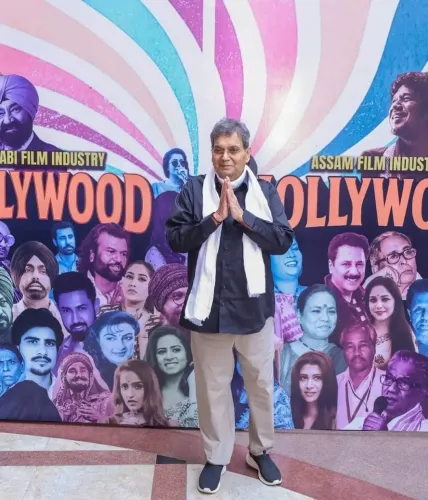Did Anupam Kher and Mahesh Bhatt Cross Paths at the Airport?

Synopsis
Key Takeaways
- Anupam Kher and Mahesh Bhatt met at Mumbai airport.
- Kher expressed heartfelt gratitude towards Bhatt.
- Their collaboration on 'Saaransh' is a significant part of their history.
- Kher's insights on regional cinema reflect its growth.
- Mentorship plays a vital role in the film industry.
Mumbai, Nov 16 (NationPress) Renowned veteran actor Anupam Kher had a chance encounter with filmmaker Mahesh Bhatt at the Mumbai airport.
Kher shared a delightful video on his Instagram, showcasing a moment where both he and Bhatt were smiling as they posed for the camera together at the airport.
In a heartfelt message, Kher expressed his gratitude towards Bhatt for being an incredible source of strength and support throughout the years.
In a touching tribute to the noted filmmaker, Kher wrote, “If you cannot see where you are going, ask someone who has been there before.” (❤️) AIRPORT MEETINGS! (😍) Thank you #BhattSaab for always being there!! You have been a great source of strength for me, both on and off screen! Love you. (❤️🙏) #Mentor #Friend #Director. (sic)
To jog your memory, Kher and Bhatt are two significant figures in the Indian film industry, having collaborated on the iconic 1984 film, “Saaransh”, which marked Kher’s debut as an actor.
Kher received widespread acclaim for his role as B.V. Pradhan - a 65-year-old father dealing with grief, which established him as a formidable talent in the acting realm.
Additionally, Kher frequently shares his insights on various aspects of filmmaking and the broader industry.
In an exclusive discussion with IANS, Kher elaborated on how regional films are revitalizing Indian narratives that have often been overlooked by Bollywood.
When asked about the current dynamics in regional cinema, Kher noted that it has evolved beyond being merely “regional” to become a pan-India phenomenon.
“First of all, it's not regional anymore. It has become a pan-India cinema. Moreover, I have worked in nearly all the languages of India, except for a few like Assamese and Gujarati. These regional cinemas are much more organized as they aspire for global acceptance. COVID-19 unveiled a treasure trove of films we hadn’t previously watched, from Malayalam, Telugu, Tamil to Bengali cinema,” he stated.







